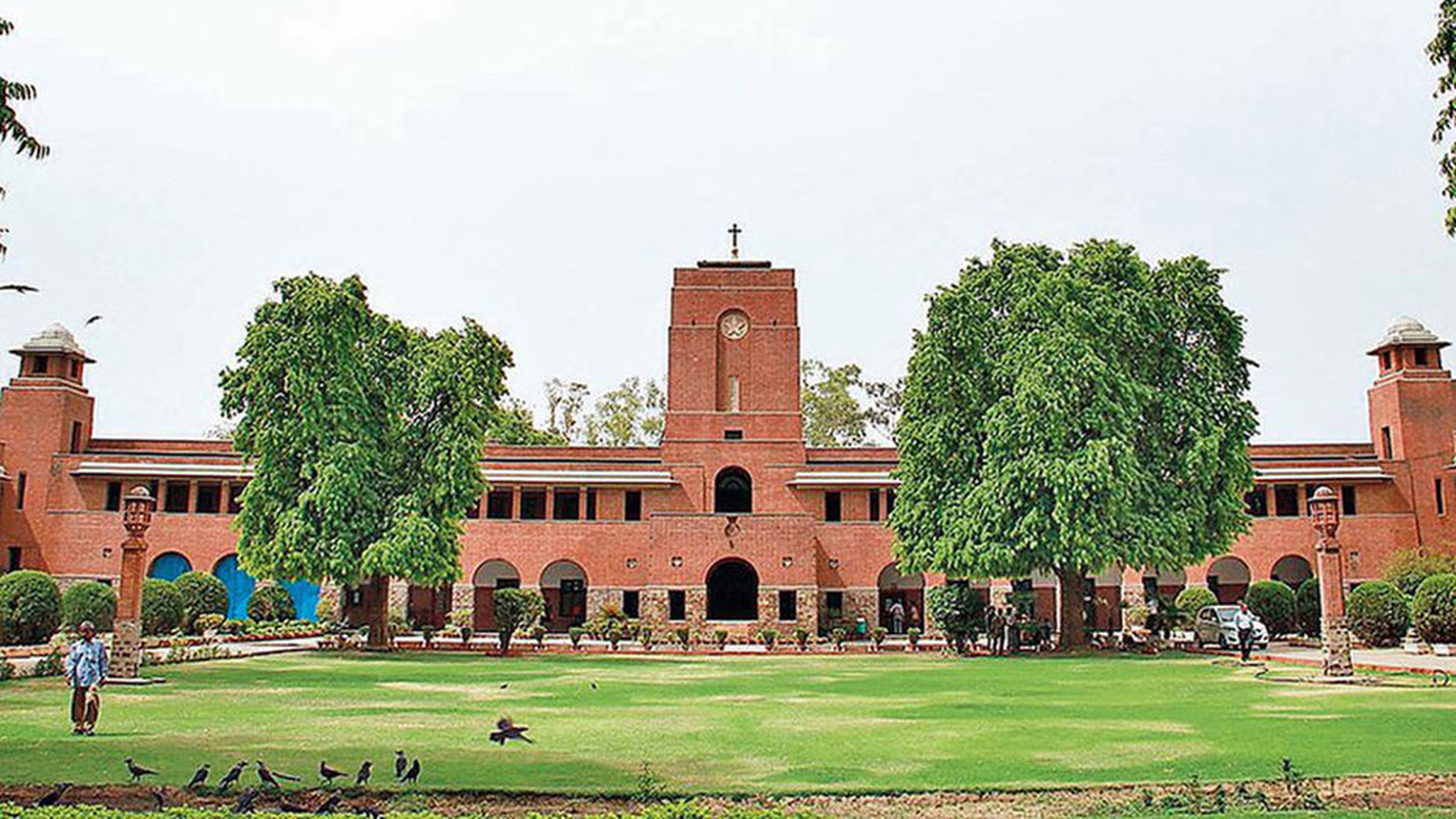Some Delhi University administrators have joined teachers and students to oppose a plan to hold online examinations.
Prof. Sachin Maheshwari, the dean of the technology faculty, wrote to vice-chancellor Yogesh Tyagi on Wednesday pointing out that the online mode should be adopted only if it could be used by all sections of students.
The DU examination branch had on Monday issued a notification stating that it had created a portal for both undergraduate and postgraduate students to fill up examination forms online. The exams are usually held in April-May.
In his letter, Maheshwari wrote that due to the lockdown, institutions were switching to online platforms, but such efforts to supplement traditional learning modes were commendable as long as the facilities were available to all students.
Maheshwari, a faculty member of the Netaji Subhas Institute of Technology (NSIT) under DU, highlighted the “big digital divide” as an impediment to students joining online platforms for the delivery of education and the conduct of exam.
Maheshwari pointed out that besides a large number of students having no access to computers, laptops and other gadgets, it must also be noted that it would be difficult to get such devices and Internet connections repaired during the lockdown. He also referred to the possible fallout of the online mode on technology-related courses.
“The need of the hour is first to successfully weather the Covid-19 storm. Consequently, the lost ground can be covered with a holistic team effort so that no one is deprived because of social, financial and circumstantial reasons.
“Across the globe, most of the robust institutions are following this inclusive approach so that no one is at a disadvantageous situation. In our country also, almost all the IITs have preponed the summer vacations rather than hastily pushing for online semester evaluation/examination,” Maheshwari wrote.
Laxmi Shivare, a first-year undergraduate student of Lakshmibai College under DU, has been making futile attempts for the past two days to fill up the online exam registration form from her home in Madhya Pradesh’s Satna district.
“I am facing a lot of difficulty in opening the website. It is not opening. I am worried that if I am facing so much trouble just to fill up the form, how will I open the question papers and write the answers when the exams are held online?” Shivare said over phone.
She said rural students were more at a disadvantage.
The University Grants Commission (UGC) has set up two committees — one to suggest ways to facilitate smooth conduct of exams during the lockdown and another to propose measures to promote degree courses in the online mode. The panels are yet to submit their reports.
Several DU teachers have told reporters that at least 40 per cent of students would not be able to appear for exams if they are held online.
One of them, Aditya Narayan Mishra, said 15 per cent of DU students were from the Scheduled Castes, 10 per cent from economically weaker sections and 7.5 per cent from the Scheduled Tribes, besides a large number of non-creamy layer backward class students. Mishra said many of them were unlikely to have gadgets and high-speed Internet to take the exams online.
J.L. Gupta, a member of the executive council of DU, questioned the online plan, which is yet to receive the approval of the decision-making bodies of the university.
“The academic council and the executive council are the statutory bodies of the university that take decisions on matters related to DU. They are yet to discuss this. How can the vice-chancellor take a decision?” Gupta asked.
The teachers suggested that the university wait till the situation improves and then hold the exams in the traditional pen-and-paper mode.
Amol Meshram, an alumni of IIT Kharagpur and an Ambedkarite scholar, said the online system would help students from privileged backgrounds much more than those from the marginalised sections.
He said poor Internet connectivity and frequent power cuts in rural areas were major hindrances to the conduct of online exams.
“If the power goes off during an online class or test, it could even lead to students losing an academic year. Access of Internet and computers and laptops in rural areas is limited,” Meshram said.
Other problems are poor buffering of online lecture videos or live classes, challenges in downloading software to undertake assignments, limited mobile data plans and a large number of students not having Wi-Fi routers at home, Meshram said.











